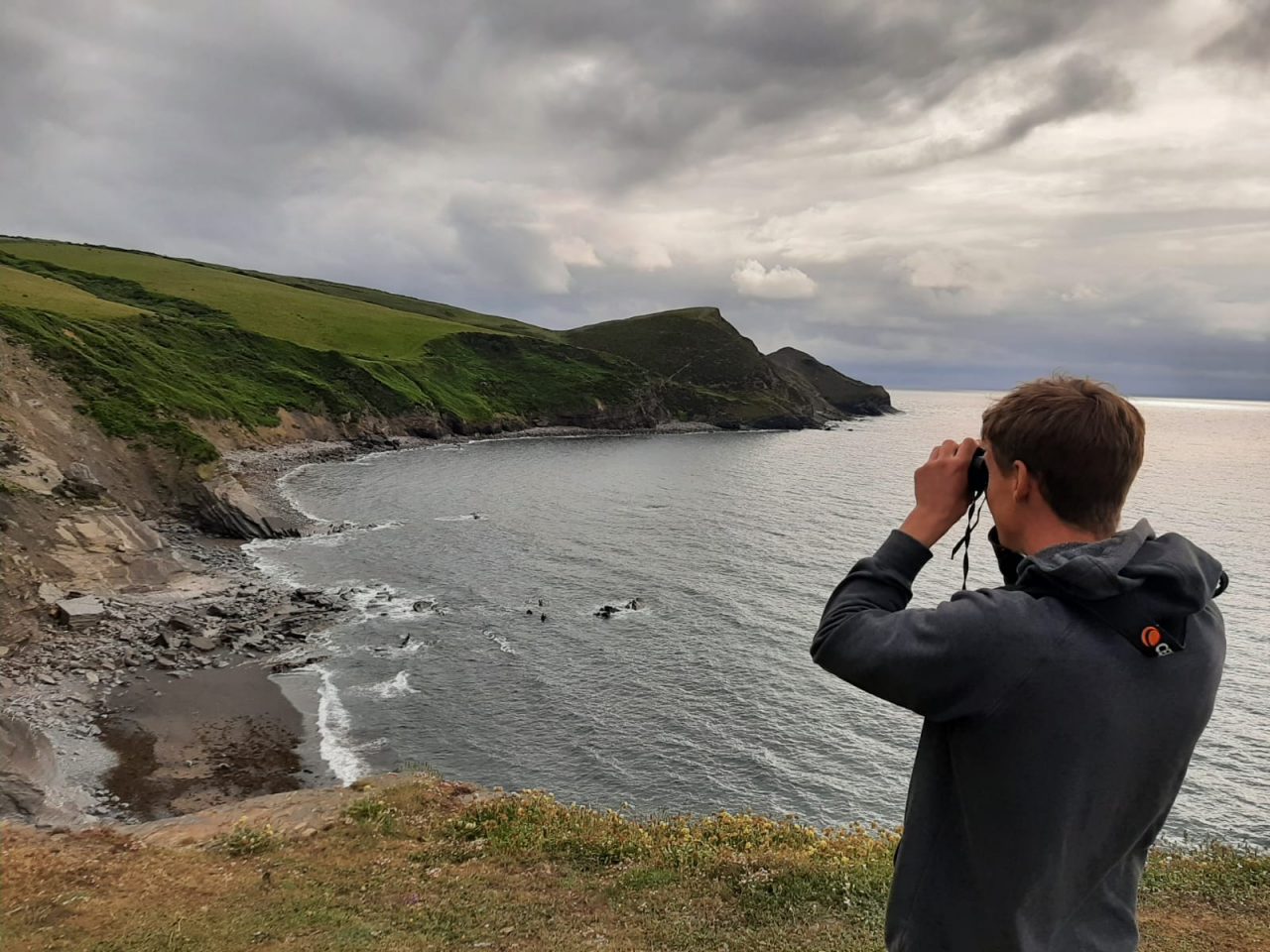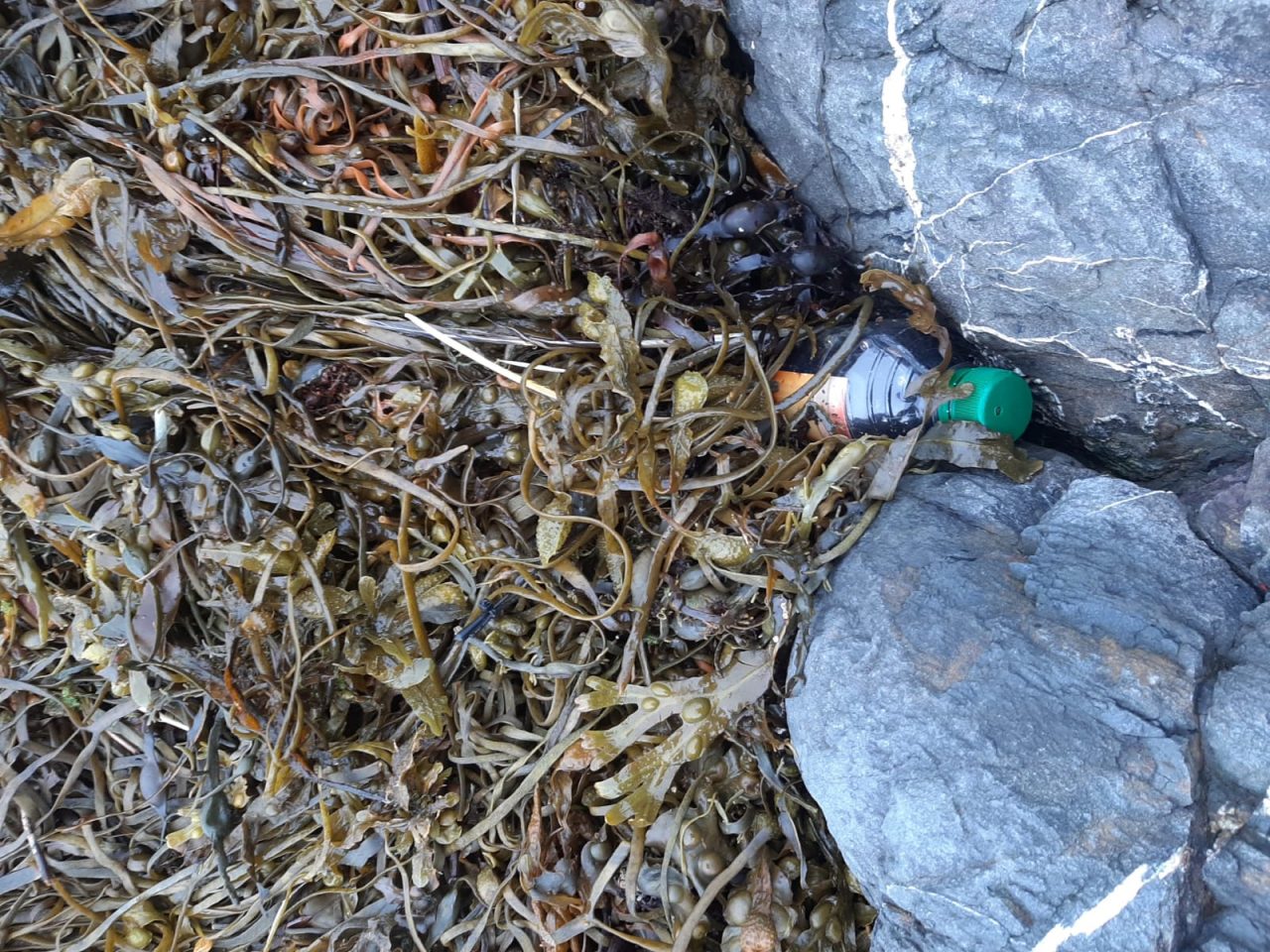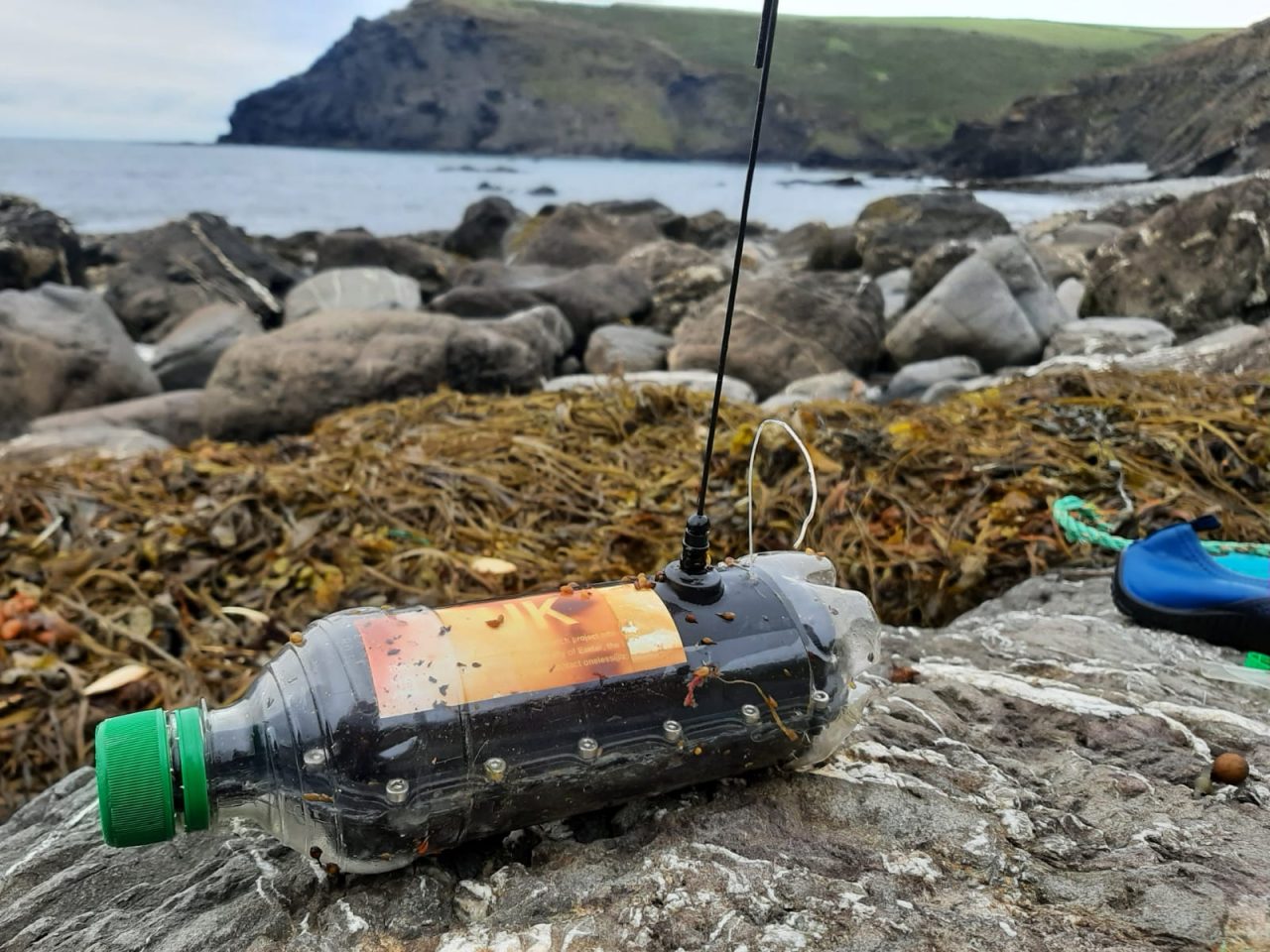Surviving storms, ships and finding a way back to the ocean
As the 2021 G7 Summit hosted in the UK came to an end in June, the leaders began their long journeys away from Cornwall, and so did their plastic namesakes. Unlike the Leaders, whom we assume had a smooth onwards journey, the tracking devices had anything but.
France, Japan, and Italy were launched from the southern side of the Cornish Peninsula and began travelling South. The tracking devices launched on the North-Western side (UK, Canada and Germany) headed North. USA, which went into the water at Lands End, joined up with the Northerly bound devices.
On the 17th of June 10 days after the release, strong cross-Atlantic winds buffeted the West coast with gusts reaching upwards of 30mph. As shown by the satellite tracking, all the Northerly-bound bottles were caught up in the storm and pushed onto shore. Each of the bottles beached in a different location but all of them demonstrated the powerful influence of wind conditions on how plastic moves through the ocean. Here’s their story.
USA
The first tracking device to be found was the USA which washed up on a remote but popular beach, Portheras Cove. Beached alongside a large quantity of other ocean plastics, it was retrieved by an early morning beach clean organised by the ‘Friends of Portheras Cove’. We spoke with Delia Webb a member of the group and head of the Cornish Plastic Pollution Coalition (CPPC).
On that particular day it had been a really strong onshore north, northwesterly and the beach was covered in a variety of bottles [and] larger plastics.
Delia Webb, Cornish Plastic Pollution Coalition (CPPC)
The scientists organising the tracking were interested in how quickly domestic litter can travel between local beaches. Though Delia has noticed cross Atlantic litter and fishery pollution on Portheras, the USA device suggests that the plastics washing up are also highly localised in origin.
If we left the beach cleans, a lot of the rubbish would go back into the sea again continuing along the coast and onto to other beaches.
Delia said
Germany
Beached by the same storm, Germany also found itself on an accessible beach and was picked up by a member of the public. After a social media appeal, the bottle was returned to the water at the same spot where it was found.
Have you been following the journey of our seven scientific monitoring devices named after the #G7 nations?
— OneOcean (@OceanFlotilla) June 22, 2021
Germany🇩🇪 is not where it should be collecting data: the ocean🌊
An operation is underway to retrieve it! Can you help? Any info please get in touch! #ListenToTheOcean pic.twitter.com/wMffnoK3uM
The bottle subsequently beached and unbeached itself on two more spots as it continued traveling Northward. Interestingly this corroborates the information from the USA bottle and Delia’s fears about the accumulation and reintroduction of ocean plastics from one beaching to the next.
Hats off to the Friends of Portheras Cove and all the many other beach cleans which go on around the UK and help to stop so much plastic going out to sea.
UK
Meanwhile, a different story is being told by the UK and Canada. Where the USA and Germany were discovered within hours of their beaching, the former devices beached but went unfound, demonstrating that not all grounded ocean plastics are immediately obvious or retrievable.
The UK bottle continued transmitting a satellite signal as it landed on a secluded cove near Crackington Haven. The device, alongside other plastics, had become entangled in seaweed and was entirely hidden aside from the protruding antenna. Without the antenna the device would likely never have been found, firstly because it managed to continue transmitting to the satellite and secondly because it enabled the rescuers, Matt Turley and Joe Weadon, from the Devon Wildlife Trust, to spot it. They mounted a rescue mission to recover it with the help of man’s best friend so that the device can be redeployed and continue contributing to science.
Matt from DWT was surprised to find this plastic bottle with an unusual feature. Released by @OneLessBTL during the #G7 summit, it was fitted with a tracking device to monitor the movement of plastic bottles in the ocean. Find out more about the project👉 https://t.co/1HLPvdDFGK pic.twitter.com/7yssuskkF5
— Devon Wildlife Trust (@DevonWildlife) July 11, 2021
Canada
In the gusts of the same storm, Canada was pushed into an area of rocky coastline North East of Pentireglaze. The satellite suggests that having moved around this area, the bottle is now lodged in a dangerous and generally inaccessible sea cave. It will only be accessible by sea kayak, and its retrieval is still being planned.
Although the Germany and Canada are out of sight, they should not be out of mind. Plastic washed up on beaches is an all too common sight but there is a great deal more that lies unseen and which, without the satellite, would be unknown.
Although the tireless work of organisations such as the CPPC and beach cleaning groups up and down the country can slow the tide of ocean plastic pollution, two out of four of our beached devices, and the quantities of plastics that accompanied them, would likely never have been retrievable under normal circumstances.
The retrieved bottles (USA and UK) will be redeployed from their original launch sites so that they can continue to transmit valuable information to our scientists as we track their movements. We hope to rescue Canada and Germany so that they too can re-join the crazy journey away from Cornwall and perhaps further out into the ocean this time.
Our Southern departures are still at sea, currently passing France and making their way through one of the world’s busiest shipping lanes.
Stay tuned and check out the Message in a Bottle Map to follow their journey!



